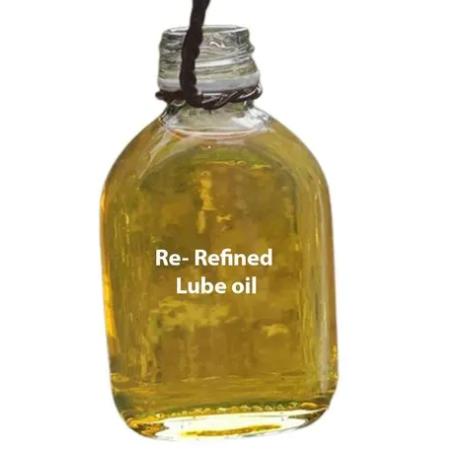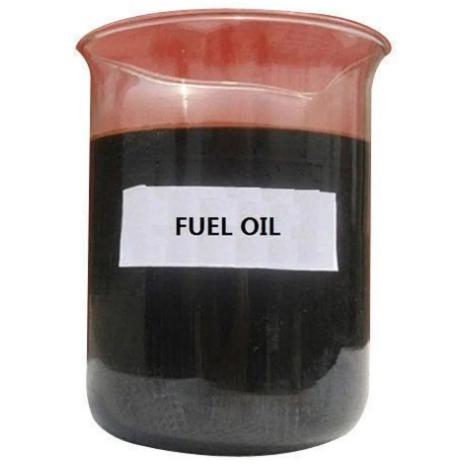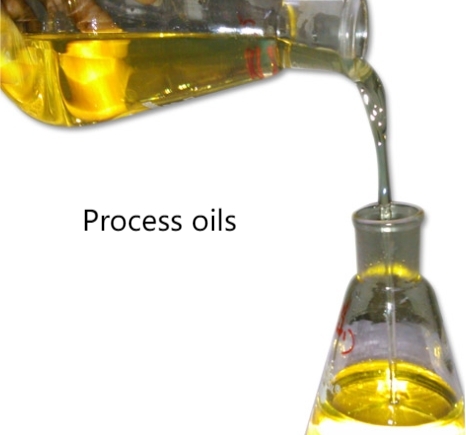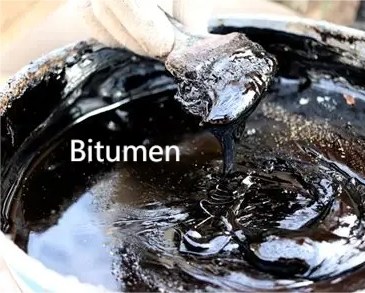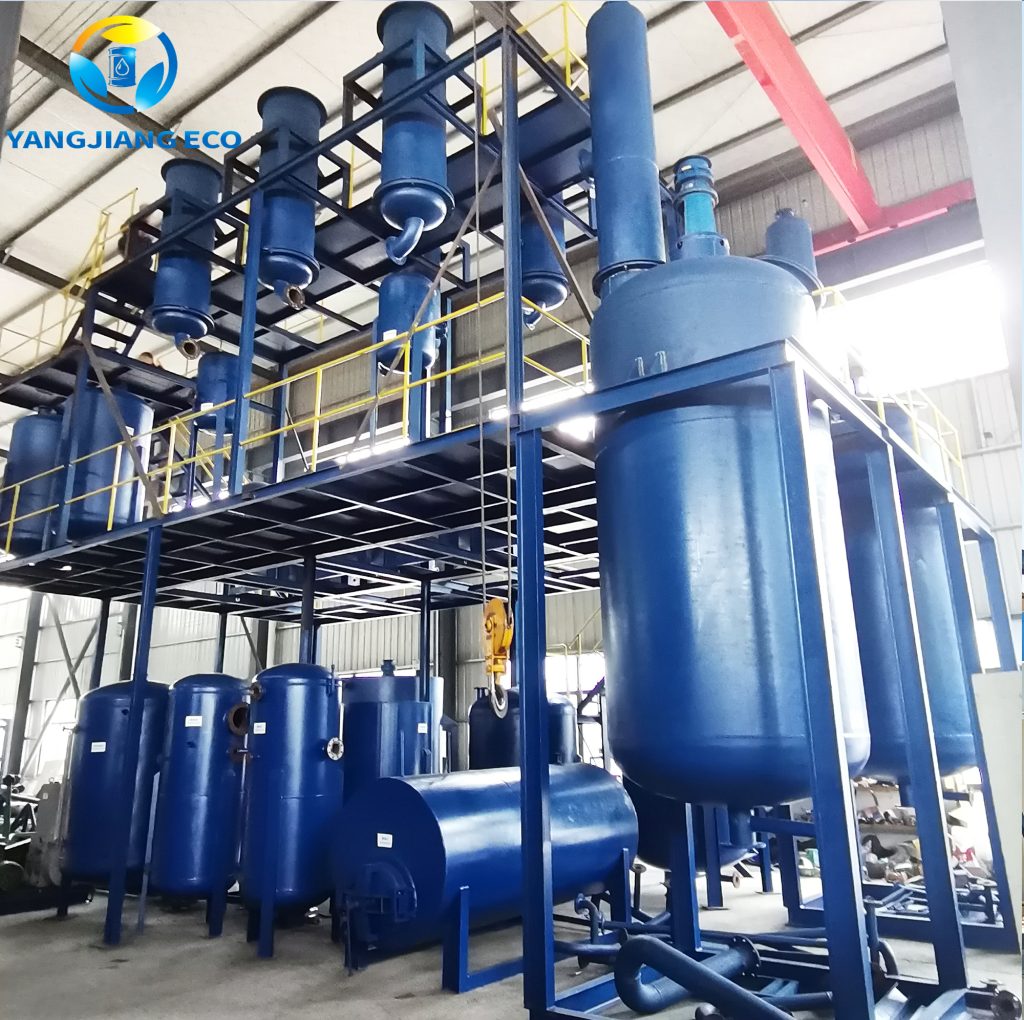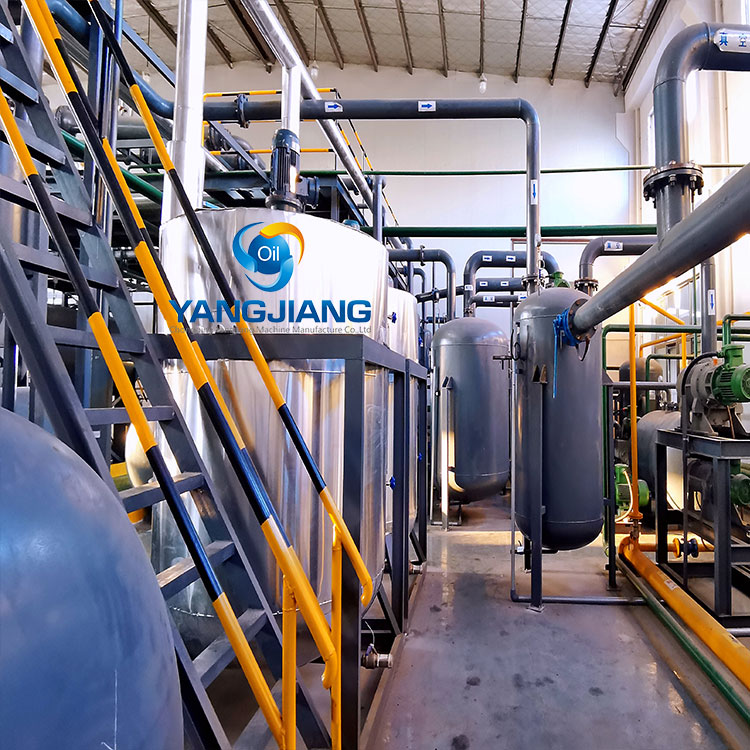Engine oil is essential for an engine to run smoothly. It reduces friction, cools components, and prevents corrosion, but once contaminated and used, it becomes waste oil and can no longer be used. Given the increasing environmental awareness and regulations, many people are wondering: Can recycled engine oil be reused?
Recycled engine oil can be reused, but it must be recycled properly.
What Happens to Engine Oil After Use?
Engine oil consists of base oil and additives, which help lubricate, cool, and protect engine parts. However, it undergoes permanent changes chemically and physically as a result of heat, pressure, and other factors.
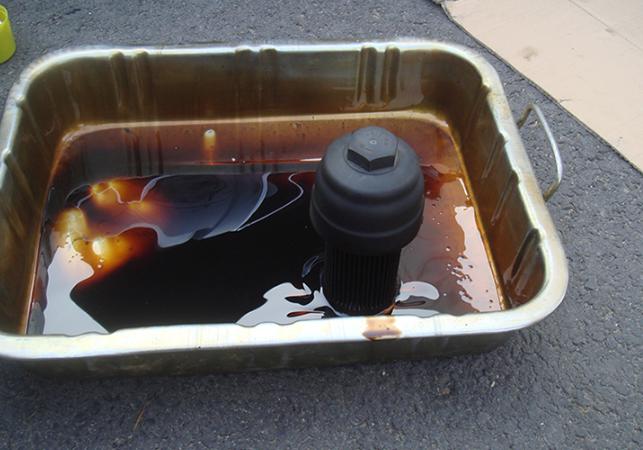
These processes degrade the oil within the following periods of time:
- Thermal Breakdown: Extreme heat causes the oil to oxidize, fracture, and form solid deposits and sludge. The oil’s viscosity and lubricity permanently decline with each passing hour.
- Contaminant Accumulation: Engine oil collects contaminants. These include metallic wear particles of the engine components, burnt soot, and diluted fuel or coolant. These particles are abrasives with the potential to exacerbate engine wear.
- Additive Depletion: Over time, the chemicals that impart detergency, anti-wear, and anti-corrosion attributes become exhausted. They become depleted when neutralizing acids and suspended solid particles.
Consequently, the oil no longer possesses the vital protective characteristics. It can no longer create a lubricating film, which may cause an increase in friction and possible harm to the engine. At this stage, the used oil is considered waste. While not useful for its intended purpose, the oil as a recyclable material still possesses considerable worth.
What Does Recycling Waste Engine Oil Mean?
Recycling waste engine oil involves collecting used oil and reprocessing it so it can be reused instead of being thrown away. Engine oil does become dirty and contaminated with metal shavings, combustion debris, and other chemical by-products, but the base oil does not disappear. It can be recovered by removing the contaminating substances and refurbishing the oil to restore its useful quality.
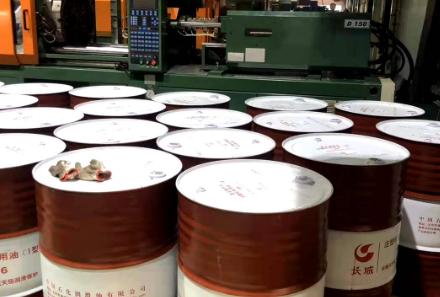
This is not the same as straining or filtering oil at home. Home re-cycling or oil filtering does not approach the level of re-refining, which is done under controlled conditions in recycling facilities. The re-refining procedure includes:
- Collection & Screening: Waste oil from workshops, factories, and households is collected and then screened to remove debris.
- Dehydration: Water and coolant mixed in oil are removed by a process of controlled heating.
- Distillation: The oil is heated under low pressure to separate clean base oil from contaminants and additives.
- Hydrotreating or Finishing: Further chemical treatment removes sulfur, nitrogen, and other remaining impurities, which enables the oil to meet industrial standards for performance.
The final product from the whole process is a re-refined base oil that can be blended with new additives to produce lubricants comparable in quality to those produced from crude oil. This fact makes the reuse of waste engine oil after recycling feasible both technically and ecologically.
Can You Reuse Waste Engine Oil After Recycling?
Don’t reuse used and untreated engine oil on any vehicle engine under any circumstances. Doing so would result in significant damage and chemical degradation.
However, when considering oil recycling, the answer to “can you reuse engine oil” is very different. With proper industrial recycling, the old oil is not simply “cleaned.” Oil recycling involves the dismantling and reconstitution of oil core components. Advanced and precisely sequenced dehydration, distillation, and chemical treatment processes safely remove all harmful contaminants, metals, and spent additives, making the oil safe to use again.

The recycling of oil also results in a regenerated base oil, a final product most distinguishable from the original waste product. New oil specifications can be met or created by mixing base oil with a completely new additive package. Therefore, waste engine oil recycling is an effective and safe industrial practice. It is not a matter of reusing old oil, but of reclaiming and making a new high-quality product from a recycled feedstock.
Reuse Engine Oil Applications
After waste engine oil undergoes advanced recycling processes, obtained regenerated base oil can serve as a raw material for a number of industrial uses. In these uses, economically and environmentally sustainable recycling of waste engine oil is viable.
- Re-refined lubricants represent the greatest value. The base oil undergoes purification and is blended with an entirely new additive package used to produce top-tier engine oil, hydraulic fluid, and gear oil to the specification of a virgin product.
- Industrial fuel oil. A widely recycled product oil serves as a clean-burning fuel in industrial applications. The recycled oil provides an economically efficient energy source, displacing the use of conventional fossil fuels in cement kilns, power stations, and large boilers.
- Process oils and feedstock.The oil can be used as a base in the formulation of process oils, which can be applied in the metalworking, textile, and chemical industries. It is also applicable as a feedstock for the production of transformer oil or plasticizers.
- Asphalt and bitumen production. In the road construction industry, the use of recycled oil is integrated into asphalt mixes both as a softener and binder, which enhances the resilience and durability of the paved surface.
These various pathways for reusing engine oil illustrate a very clear model of a circular economy: taking a waste product and recycling it into key resources, while minimizing our dependence on crude oil extraction.
How to Dispose of Waste Engine Oil Properly?
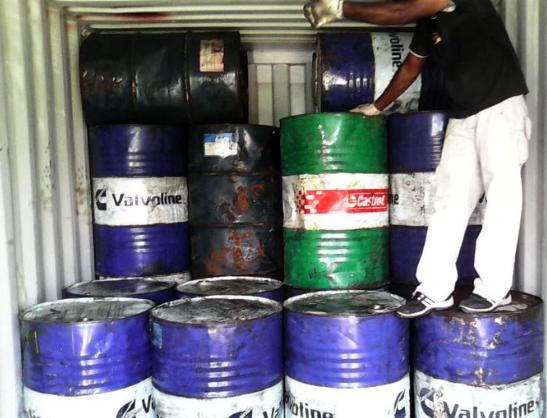
Proper disposal is the critical first step that enables waste engine oil to be safely and effectively reused after recycling. Improper handling results in environmental damage, making the oil non-recyclable. These steps should be followed to ensure your used oil is managed correctly:
- Containment: Collect the used oil following draining into a clean, leak-tight container of HDPE or metal. The oil container itself is usually acceptable. The container should not have held other chemicals previously.
- Keep It Pure: Waste engine oil should never be mixed with other fluids such as coolants, brake fluids, gasoline, solvents, or other contaminants. Cross-contamination complicates the recycling process and may render any batch of that type unsuitable for recovery.
- Secure Storage: Store the sealed container in a cool, dry place away from direct sunlight, any heat sources, or water drains until you are ready for disposal. This prevents leaks and degradation.
- Take to a Collection Event or Collection Facility: Transport the container to an approved collection facility. These include automotive service centers, quick-lube shops, many auto parts retailers, and municipal hazardous waste recycling centers. These facilities have the systems in place to aggregate and send the oil to professional recycling plants.
For Large-Volume Generators: The Role of a Waste Engine Oil Recycling Plant

For businesses that generate large volumes of used oil, such as large automotive repair shops, fleet operators, or industrial plants, third-party collection is not only logistically tricky but economically inefficient. In such cases, a waste engine oil recycling plant on-site would represent a strategic solution.
By processing your own waste stream, you can:
- Reach Energy Independence: Convert your waste oil directly into valuable industrial fuel oil to power your own facilities, thus greatly reducing energy costs.
- New Revenue Stream: Produce and sell regenerated base oil or clean fuel to local markets.
- Ensure Regulatory Compliance and Traceability: Retain control of the entire waste-to-product lifecycle for complete adherence to environmental standards.
By following the right disposal or investing in a waste engine oil recycling plant, one is not only managing waste but also supplying the raw material for the reuse of engine oil, which contributes to environmental protection and resource conservation while creating major economic value.
In a nutshell, the science of recycling answers the question, “Can you reuse waste engine oil?” While direct reutilization is harmful, professional processing turns this waste into an asset. Reutilization of waste engine oil, after it has undergone proper processing through recycling, is not only possible but it is indeed a proven practical reality that powers a circular economy, actually turning environmental responsibility into economic opportunity.
Recommended Products

